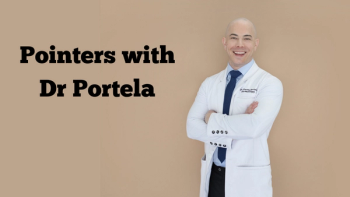
10 things never to say to your patients
Our words carry tremendous weight. They can shape or misshape a patient’s perspective of you, of her condition, and of her treatment outcome. In the everyday hustle of seeing patients, these are things you should never say and why.
Our words carry tremendous weight. They can shape or misshape a patient’s perspective of you, of her condition, and of her treatment outcome. In the everyday hustle of seeing patients, these are things you should never say and why.
1. “oops!”
“Let’s say you’re doing a surgery, and you’re putting a stitch in, and you accidently pull the stitch all the way through and have to put it in again. You might say, ’oops’,” says Steven R. Feldman, M.D., Ph.D., professor of dermatology, Wake Forest Baptist Medical Center, Winston-Salem, N.C. “You never want to do that. Oops makes people lose their sense of assurance in the doctor. You don’t want to do something that causes them to question you because, once they question something, they’ll question everything.”
It’s better to wait until the correction and then say: “Oh, that looks beautiful,” or “That looks good,” he advises.
2. “Teens don’t take their meds.”
Dr. Feldman, who has published studies on patient compliance, says, “The reason you don’t want to tell that to a teenager is because teenagers want to be like other teenagers. Instead, you want to tell them something like, ‘This is the medicine that most teenagers are using to make their acne better.’”
3. “I guarantee results.”
“Always let the patient know that they should contact you if the expected results do not happen in a certain period of time or if there appears to be a complication,” says Mid-town Manhattan dermatologist Janet Prystowsky, M.D. “Otherwise, you may end up with a problem that, at best, results in the patient leaving your practice, or, at worst, could lead to litigation. …even prescribing a small tube of topical steroid for a condition should come with an understanding that if the condition does not go away, they need to come back and let you look at it again. Tell them how long it should take to clear up.”
4. “There’s no cure.”
This is about maintaining your patient’s hope, says Lauren Eckert Ploch, M.D., M.Ed., an Aiken, S.C., dermatologist. “I tell patients that, while we don't have a definitive cure, yet, there are several great treatments available that can help to treat and sometimes cure the symptoms of the disease,” she says. “I also like to add that, while the disease may come back if the treatments are stopped, the treatments are safe for long-term use. I also like to discuss pending research about the disease.”
5. “There’s nothing there!”
Often, patients present to clinic with very subtle skin changes that can be nearly undetectable to the naked eye, Dr. Ploch says. The dermatologist asks the patient to point out the concern, using a mirror.
“Often, the patient's concern is something that we, as dermatologists, see as physiologically normal, but that the patient had not noticed before. Recognizing this as normal physiology, however minor it may be, can be reassuring to the patient. Acknowledging their concern and reassuring them that it's normal solves the issue in this case and validates the patient's very real concerns about his [or] her health,” she says.
6. “Dysplastic,” “pre-cancerous,” and other five-dollar words
According to Joe Shaffer, M.D., a Mohs surgeon and dermatologist in St. Paul, Minn., using technical-sounding medical descriptions or highly clinical jargon about potentially scary diseases might frighten patients.
“Far better to explain it in terms of how these lesions compare with common moles and melanoma in terms of risk. What the potential risk of that specific lesion turning into a melanoma down the road is; and that there is likely an overall increase in risk for the patient in melanoma. Trying to avoid jargon is key in any medical encounter, and this is one that often confuses patients. Good to remember that the term nevus is also very medical,” Dr. Shaffer says.
7. “It’s Friday, here’s your bad news.”
“I never call and give a patient a diagnosis of skin cancer on a Friday. I always wait to the following Monday. There’s nothing that can be done on the weekend except for the patient to worry,” says Charles E. Crutchfield III, M.D., clinical professor of dermatology of the University of Minnesota Medical School and medical director of Crutchfield Dermatology, in Eagan, Minn. The key is to be sensitive to patients’ situations and conditions, while being honest and realistic.
8. “There’s nothing I can do for you.”
“I never tell a patient there is absolutely nothing we can do for you,” Dr. Crutchfield adds. “I will say the treatment options can be challenging, but there are certainly things we can try, and we will keep trying as long as you are willing.”
9. “Sunscreen is enough.”
“Sunscreen is only one part of a good sun-protection program. Wearing a wide-brimmed hat and sunglasses is just as important, if not more so, than sunscreen to protect the face, neck and chest,” says Elizabeth Tanzi, M.D., founder and director of Capital Laser and Skin Care and clinical professor of dermatology at the George Washington Medical Center.
10. “This won’t hurt a bit.”
“I never say ‘You won’t feel a thing,’ because chances are what I am doing to them will be uncomfortable or downright painful,” Dr. Tanzi says. “Better to be honest with the patient about discomfort and work to reduce it rather than downplay it and surprise a patient with pain. That’s not nice.”
Newsletter
Like what you’re reading? Subscribe to Dermatology Times for weekly updates on therapies, innovations, and real-world practice tips.















